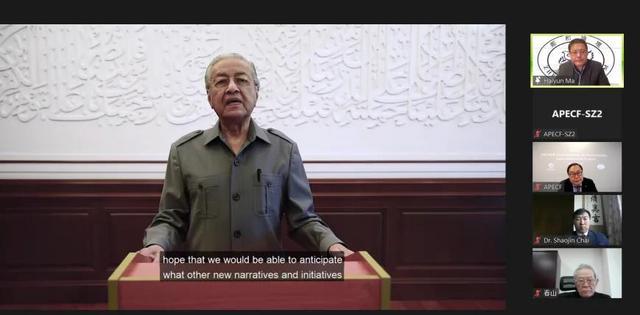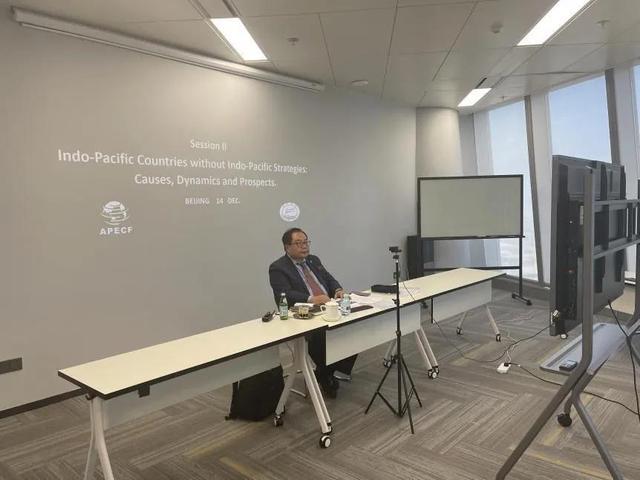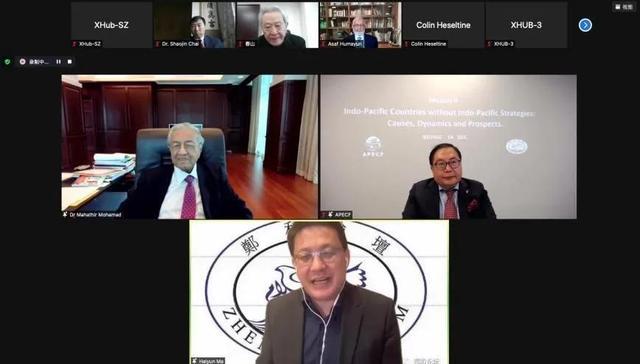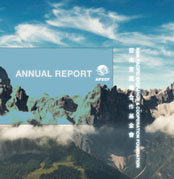December 14th, 2021
Mahathir Mohamad delivered a wonderful speech at
international symposium on “Indo-Pacific Strategic Dialogue”
(From www.chinareport.com, Correspondent Geng Lin) At 14:00 p.m. Beijing time on December 14, 2021, at the second session of international symposium on “Indo-Pacific Strategy”, former Malaysian Prime Minister Mahathir Mohamad delivered a keynote speech focusing on the theme of “Indo-Pacific Countries without Indo-Pacific Strategies: Causes, Dynamics and Prospects”, which aroused strong response from the participants.

Mahathir Mohamad delivers a wonderful speech at the “Indo-Pacific Strategic Dialogue”
Mahathir Mohamad said that the international symposium of “Indo-Pacific Strategic Dialogue” was at the right time, and he hoped to take this opportunity to obtain more intelligent opinions on how to deal with the new situation, threats and pains faced by this geopolitical region. He said that different expressions and initiatives derived from the “Indo-Pacific Strategy” are expected to appear soon. He believed that the essence of ASEAN’s response to the “Indo-Pacific Strategy” is how the countries in this region balance and act in the context of the growth of mutual mistrust between China and the United States. During the cold war, the polarization of ideology was the cause of the division between the East and the West. But today’s competition between China and the United States is all-round factors including social and economic differences. The current situation is not the same as that of the cold war, but today the situation is even more complicated. Mutual suspicion and bigotry between China and the United States in military, science and technology, economy and other aspects may lead to serious consequences.
When talking about China’s Belt & Road initiative, Mahathir Mohamad mentioned that many developing countries have accepted China’s Belt & Road projects. Although many arguments compare it with neocolonialism and economic expansionism, these projects are more of a business behavior that both sides are willing to do. The United States and seven Western countries have tit for tat to China’s Belt & Road initiative, and issued a blueprint for “Build Back Better World” (B3W). It is too early to judge whether this blueprint can bring “welfare” to the economic development of ASEAN countries; in addition, it is naive to believe that this blueprint does not serve Western interests and strategies.
What is the trend of the B3W? Mahathir Mohamad believed that the competition between China’s Belt & Road initiative and the B3W may promote human development and civilization progress. As for Malaysia, Mahathir Mohamad believed that for the countries like Malaysia, continuing to implement the “Hedging Strategy” is closely related to the “non-alignment” concept of Malaysia and ASEAN. To some extent, the Indo-Pacific Strategy of the United States threatens the ASEAN’s non-alignment policy. Mahathir Mohamad also frankly said that in face of many Indo-Pacific strategies, such as the security cooperation among the United States, Britain and Australia (AUKUS), it is difficult for countries in this region to take the middle route, but some ASEAN countries have different perceptions. Mahathir Mohamad also believed that agreements such as AUKUS should be regarded as “Anglosphere Union”, especially when it comes to mutual transfer of nuclear technology between the parties to the agreement, suspicion, mutual defense and anxiety will arise. If such groups persist, ASEAN’s non-aligned status will either outdated or unstable.
Mahathir Mohamad believed that it is an interest perspective on how Muslin countries view the Indo-Pacific Strategy of Europe and the United States. The large population of Muslims in the Indo-Pacific region is a large market for Europe, the United States and China. If the leaders of these Muslim countries can position themselves correctly, the various initiatives of these competitive powers actually benefit Muslim countries.
Although Mahathir Mohamad believed that at this stage, Muslin countries could not completely reverse the asymmetric relationship with the west, he hoped that Muslin countries in the Indo-Pacific region could properly use their resource, it need not necessarily result in a wholesale handing over of the nation’s flesh and soul.
Asaf Humayun, Director General of the National Centre for Maritime Policy Research at Bahria University and retired Three-star Rank Admiral of Pakistan Navy, Ebtesam al-Ketbi, Founder and President of the Emirates Policy Center and a member of the Gulf Cooperation Council's Consultative Commission, Shaojin Chai, Professor of International Relations at the University of Sharjah, UAE and former Research Fellow and Advisor at the UAE Ministry of Culture & Knowledge Development, attended the dialogue meeting.

Xiao Wunan, Executive Vice Chairman of Asia Pacific Exchange & Cooperation Foundation (APECF) delivers his opening remarks for the second session of “Indo-Pacific Strategic Dialogue”
Xiao Wunan, Executive Vice Chairman of the APECF and Executive Deputy Director of Asia-Pacific Research Institute for Strategy, delivered the opening speech of the symposium. Haiyun Ma, associate professor of history at Frostburg State University and President of Zhenghe Forum, presided over this symposium.

Haiyun Ma, President of Zhenghe Forum, presides over the meeting
Executive Editor: Li Chuanjun


 Back
Back